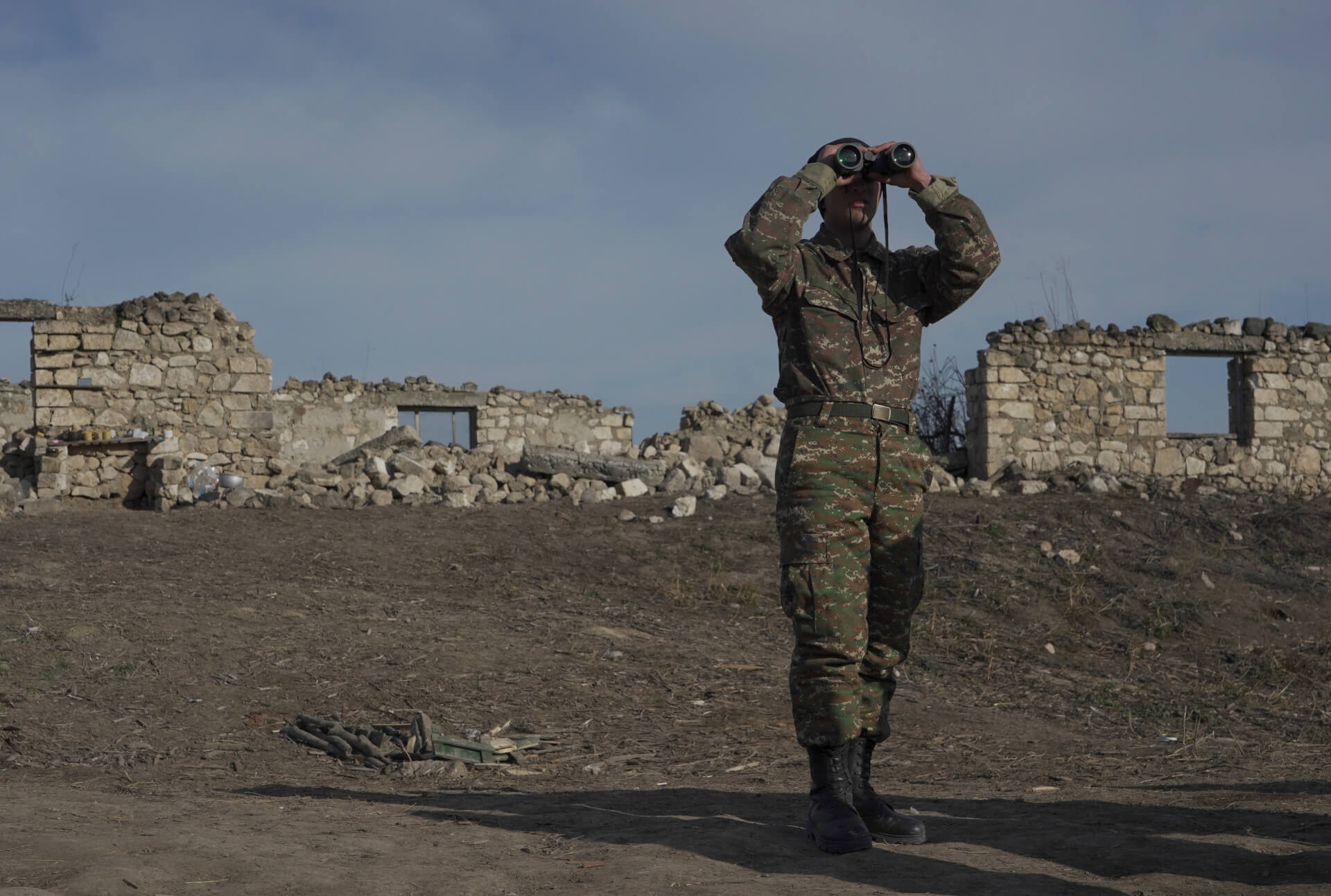Armenia has accused Azerbaijan of sending forces into its territory in the Syunik province. Officials in Yerevan claim that Azeri troops, on May 12, advanced up to 3.5 km toward Armenia from their previous positions. Armenian caretaker Prime Minister (PM) Nikol Pashinyan said on Friday that the incident was an attempt by Azerbaijan to “take up strategic positions” in Armenia and added that after assessing the situation, Armenia had concluded that “Azerbaijan’s goal is to provoke a military conflict in the territory of the Republic of Armenia.”
Armenia also officially requested the Russia-led Collective Security Treaty Organisation (CSTO) for launching procedures in line with the Treaty regarding the current situation, including political and military options. The CSTO is an intergovernmental military alliance of post-Soviet states, including Armenia, Belarus, Kazakhstan, Kyrgyzstan, Russia, and Tajikistan. Azerbaijan withdrew from the Treaty in 1999 over claims that the alliance was doing little to address Azerbaijan’s concerns regarding the Nagorno-Karabakh region. The CSTO also played a crucial role in reaching a ceasefire deal to end the 2020 war between Baku and Yerevan. Armenia’s acting Defence Minister, Vagharshak Harutyunyan, held a conversation with CSTO Secretary General Stanislav Zas regarding the matter on Friday. Harutyunyan emphasised the importance of settling the tensions between Baku and Yerevan “peacefully,” and added that Azerbaijan’s provocations “significantly jeopardise the fragile peace” reached between both sides following last year’s war over the disputed Nagorno-Karabakh region. For his part, Zas said that the CSTO was “closely following” the developments in the region and added that “if necessary, actions will be taken” under the provisions of the Treaty charter.
Azerbaijan, on the other hand, dismissed Armenia’s claims as “baseless.” Azerbaijan Foreign Ministry spokesperson Leyla Abdullayeva said that “the root cause of the border issues in Armenia’s illegal occupation of Azerbaijan’s territories till November 2020. Hence, it is Armenia that violated Azerbaijan’s internationally recognised borders. Azerbaijan is only restoring its internationally recognized borders.”
The Kremlin released a statement on Friday, saying that Russian President Vladimir Putin and Pashinyan held phone talks to discuss the situation around Nagorno-Karabakh. “The President of Russia reaffirmed Russia’s commitment to further active mediation and close contacts with Yerevan and Baku in the interests of ensuring stability in the region,” the statement said. Pashinyan told Putin that Armenia was willing to engage in “constructive dialogue” with Azerbaijan to resolve any emerging problems.
The United States (US) State Department deputy spokesperson Jalina Porter said on Friday that the US is “closely monitoring” the situation along the border between Armenia and Azerbaijan. “Military movements in disputed territories are irresponsible, and they’re also unnecessarily provocative,” Porter said and added that the US expects “Azerbaijan to pull back all forces immediately and cease further provocation.” US Secretary of State Antony Blinken and French FM Jean-Yves Le Drian also discussed the current tensions in Nagorno-Karabakh and stressed the “need for a long-term political settlement” of the conflict.
Lawmakers from several European countries, including the Netherlands and Italy, called on Azerbaijan to withdraw troops from the region. In this respect, Armenian Foreign Ministry spokesperson Anna Naghdalyan said that Armenia is hopeful that the Azerbaijani side will abide by these calls and will not further escalate the situation.” The Azerbaijani Foreign Ministry said that “Azerbaijan is strongly committed to peace, security and regional cooperation on the basis of respect for sovereignty, territorial integrity and inviolability of the internationally recognized borders.”
Armenia Accuses Azeri Troops of Breaching Border
Officials in Yerevan claim that Azeri troops, on May 12, advanced up to 3.5 km toward Armenia from their previous positions.
May 17, 2021

SOURCE: ARTEM MIRYUKOV/REUTERS
